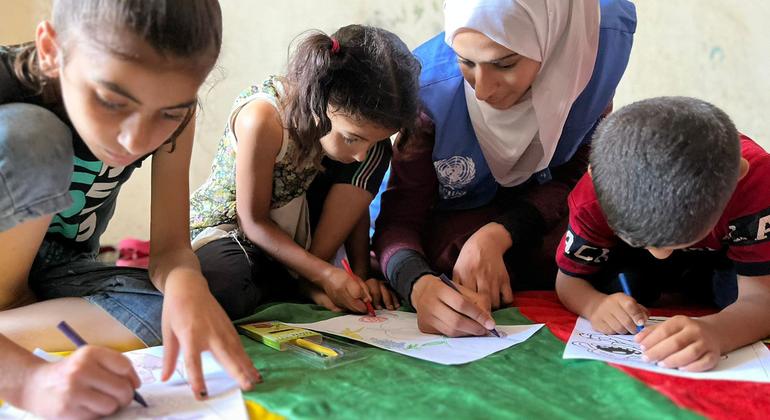In a significant turn of events, sixteen countries decided to pull their funding from the United Nations Relief and Works Agency for Palestine Refugees (UNRWA) in January, amounting to a total of $450 million. This decision came in the wake of unproven allegations made by Israel that a dozen UNRWA staff members were involved in Hamas-led terror attacks on southern Israel on 7 October. The attacks resulted in the death of 1,200 individuals and the hostage-taking of more than 250 people.
The allegations made by Israel prompted a strong response from various countries, leading to the suspension of funding for UNRWA. However, the United Kingdom, under the new Labour Government led by Foreign Secretary David Lammy, took a different approach. Mr. Lammy addressed the House of Commons and announced that an independent review of the allegations had been conducted at the request of the Secretary-General. The review, carried out by former French foreign minister Catherine Colonna, found that Israel had not provided any evidence to support their claims against UNRWA.
Following the findings of the independent review, Mr. Lammy expressed his shock at the allegations but also stated that UNRWA had taken steps to ensure the highest standards of neutrality. As a result, the UK decided to provide $27 million in funding for UNRWA to be used for emergency humanitarian supplies in Gaza and the occupied West Bank.
The decision by the UK marked a significant departure from the stance taken by the previous Conservative administration. Initially, when the allegations surfaced, Britain had joined other countries in suspending funding for UNRWA. However, the US remained the only country to continue withholding funding for the agency, which serves as the primary provider of aid in the Occupied Palestinian Territory.
In a statement posted online, UNRWA Commissioner-General Philippe Lazzarini emphasized the crucial role of the agency in providing lifesaving assistance and promoting human development in Gaza and the surrounding region. He also reiterated his commitment to implementing the 50 recommendations put forth in the independent report led by Ms. Colonna.
The importance of UNRWA’s work was underscored at a recent pledging conference where 118 Member States reaffirmed their support for the agency. UN Secretary-General António Guterres warned that without additional funding, Palestine refugees would lose a vital lifeline and their last hope for a better future. He emphasized that there was no alternative to UNRWA and called for continued support from the international community.
The funding crisis facing UNRWA has raised concerns about the agency’s ability to provide essential services to millions of Palestinians in need. The withdrawal of financial support from key donors has put a strain on UNRWA’s operations, threatening its ability to deliver critical aid to vulnerable populations.
Despite the challenges, UNRWA remains committed to its mandate of providing assistance to Palestine refugees and promoting their well-being. The agency’s dedicated teams continue to work tirelessly to deliver aid and support to those in need, even in the face of funding uncertainty.
As the situation unfolds, the international community must come together to ensure that UNRWA has the resources it needs to carry out its vital mission. The support of countries like the UK, which have stepped up to provide funding in the face of adversity, is crucial to ensuring that UNRWA can continue its lifesaving work in Gaza and beyond. By rallying behind UNRWA and reaffirming their commitment to supporting Palestine refugees, countries can help alleviate the suffering of those in need and provide hope for a better future.









